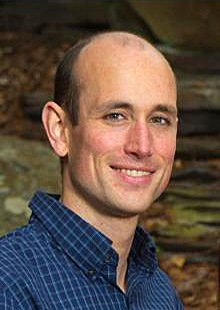
ABOUT
Josh Kacher joined Georgia Tech’s Materials Science and Engineering department as an assistant professor in Fall of 2015. Prior to his appointment, he was a postdoctoral scholar at the University of California, Berkeley. There, he worked in collaboration with General Motors to understand the Portevin-le Chatelier effect in Al-Mg and with the navy to develop novel rhenium-replacement alloys. His research approach centered on applying in situ TEM deformation to understand the influence of local chemistry on the behavior of defects such as dislocations and twins. This was coupled with mesoscale characterization of the defect state using EBSD for multiscale characterization of the deformation processes.
His PhD and Masters work similarly focused on applying multiscale electron microscopy techniques to understanding defect behavior in a variety of systems such as ion-irradiated stainless steels, materials at elevated temperatures, and Mg alloys for light-weight alloy development.
RESEARCH INTERESTS
Josh Kacher’s research group is interested in understanding the mechanical and corrosion behavior of materials in extreme environments. This includes understanding material deformation and failure in either ambient or aggressive environments as well as understanding how variations in microstructure influence local corrosion susceptibility.
A common theme in the Kacher Lab research approach is the development and application of multiscale electron microscopy techniques, including EBSD-based techniques for rapid microstructure characterization and quantification at the mesoscale and in situ TEM experiments where defect interactions and chemical processes can be observed directly. Current research focuses include fatigue crack initiation and growth, localized corrosion attack and sensitization, microstructural effects in ductile fracture, and dislocation/grain boundary interactions in coarse and ultrafine-grained materials.